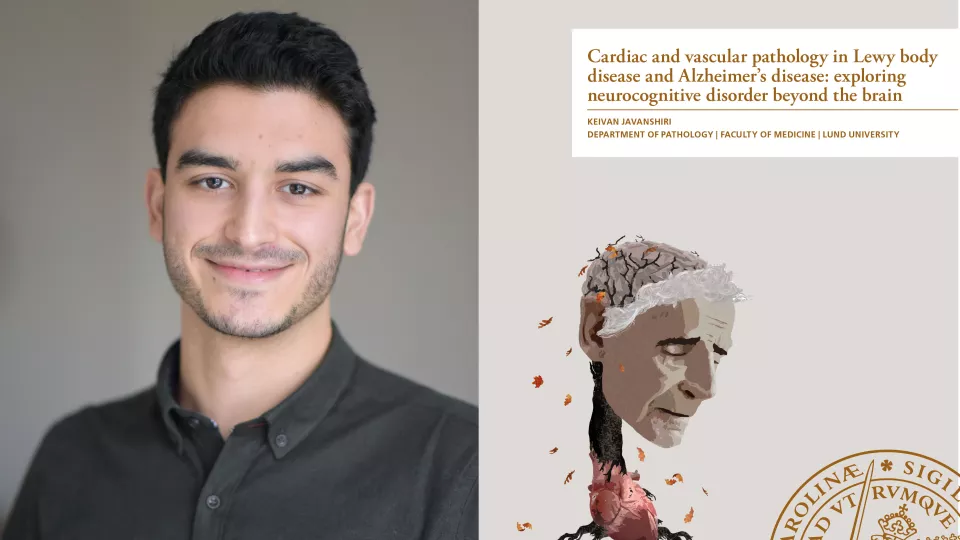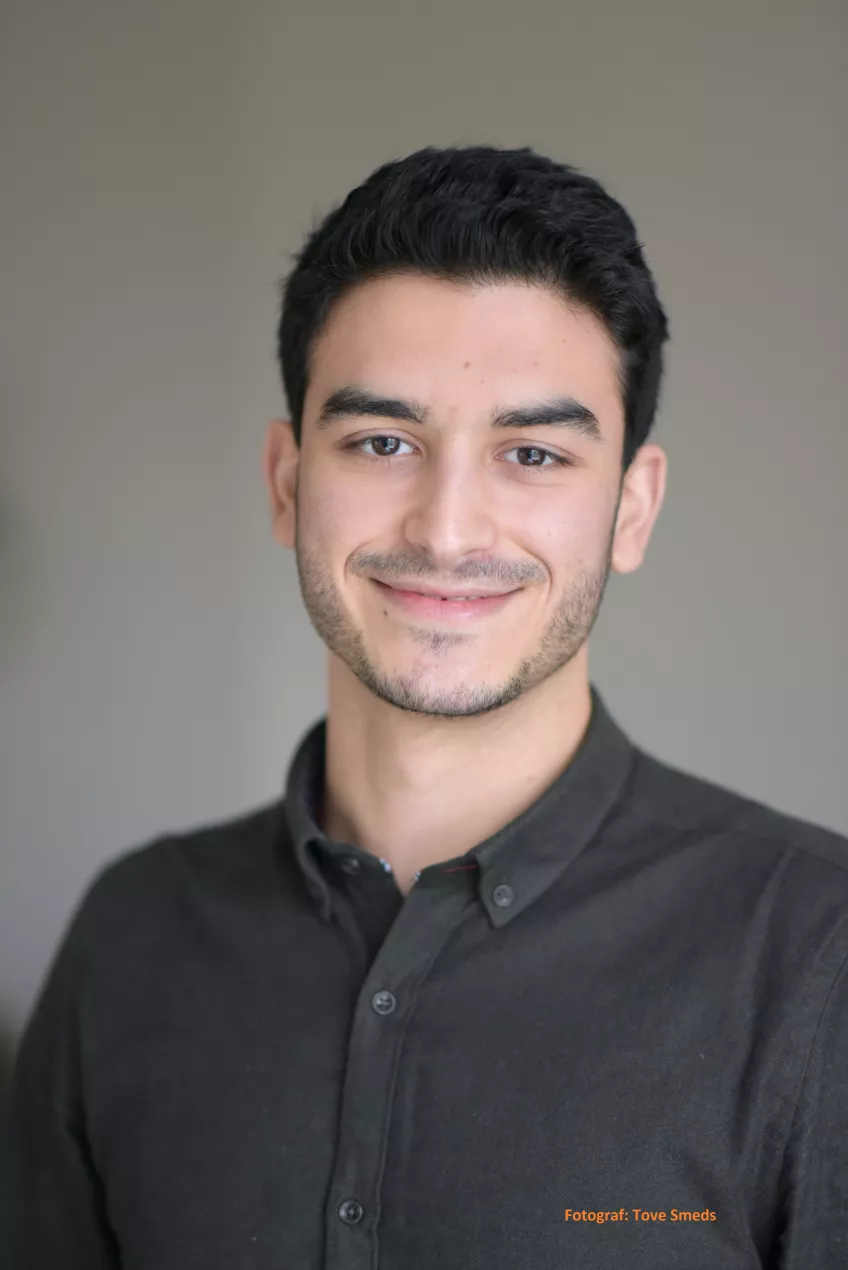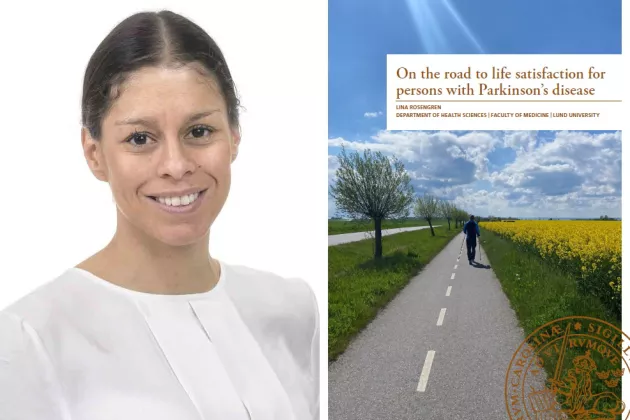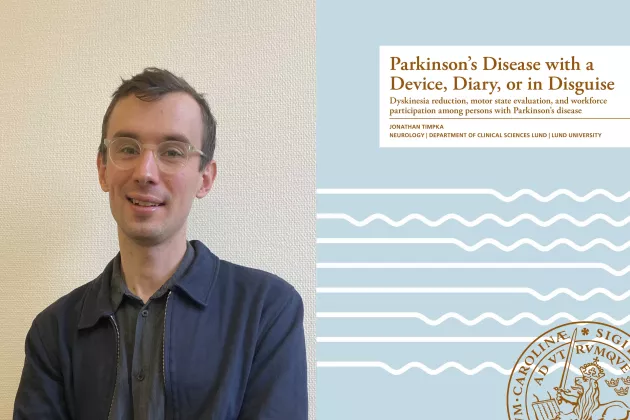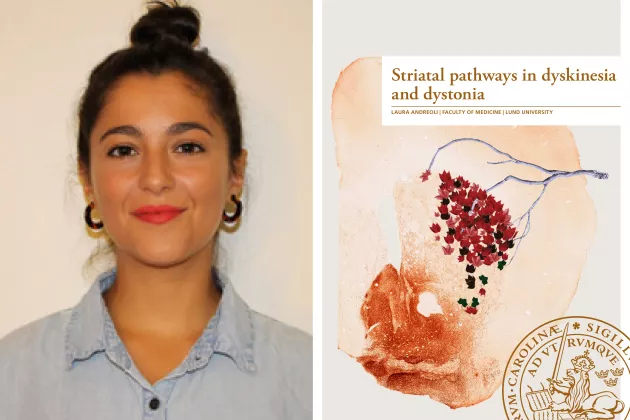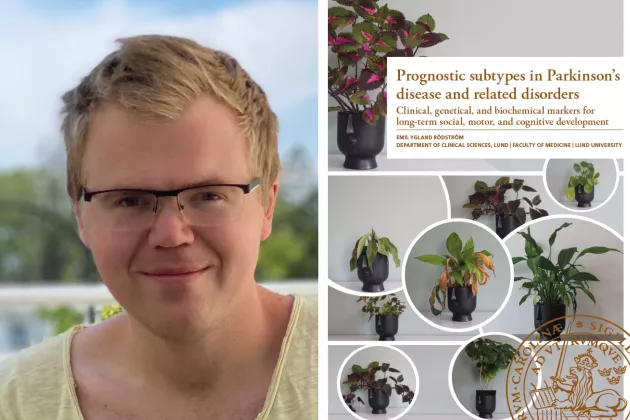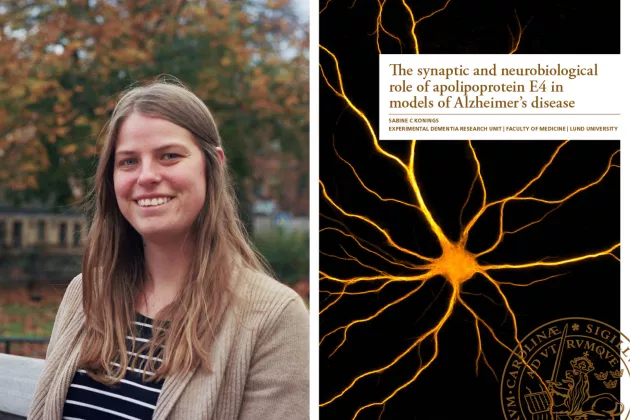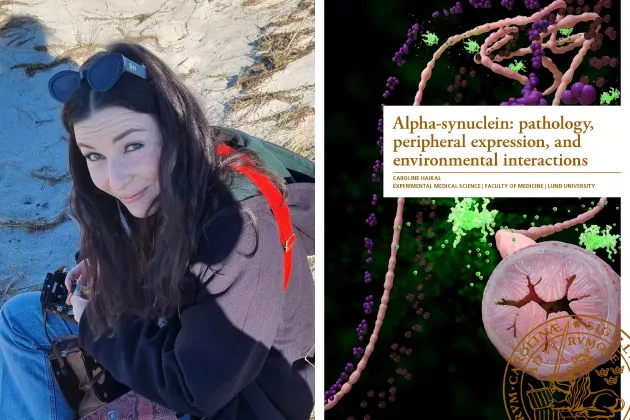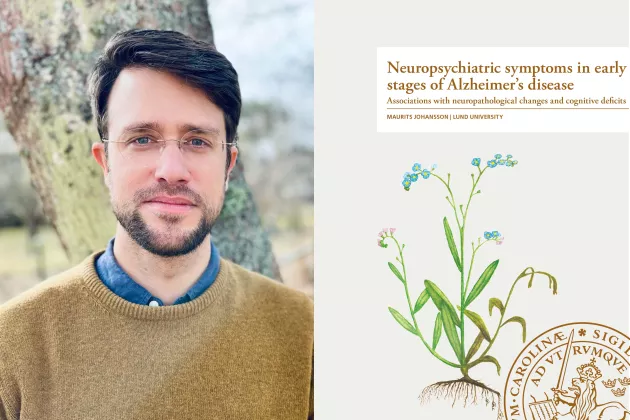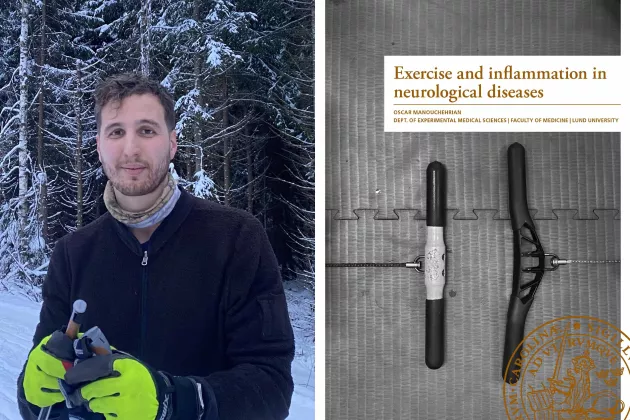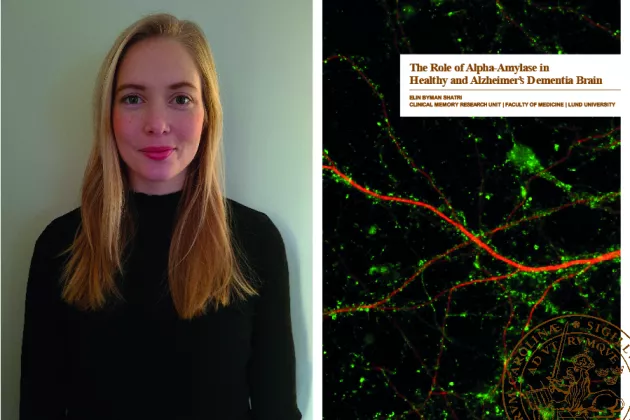Tell us about your research!
“My research focuses on cognitive disorders, which you may envision like a tree where each branch represents one type of disorder. Alzheimer’s disease, vascular dementia, and Lewy body dementia are subtypes of dementia that I decided to focus primarily on during my thesis work. I have used post-mortem brain tissue from patients with different subtypes of dementia to address three critical challenges that we encounter in the clinic.
To begin with, there is no way to be certain about which subtype of dementia a patient suffers from while he or she is still alive. I use their post-mortem brain tissue to confirm that the diagnosis was properly set.
Brain tissue from deceased patients is extremely valuable since it allowed me to learn more about the underlying pathology. Little is known about risk factors for Alzheimer’s disease, the most prevalent form of dementia, and whether or not we may prevent it by making wise lifestyle-based choices. Therefore, I investigated if hypertension, diabetes typ II and cardiovascular risk factors are linked to common subtypes of dementia.
A clinical concern with patients suffering from Lewy body dementia is that they die relatively soon after diagnosis. And it hasn’t really been any explanation as to why. It has been speculated whether they die from an unexplained sudden cardiac death or if the typical pathology seen in the brain in these individuals also appear in other organs, including the heart. So, I wanted to investigate the cause of death in these individuals and explore if the typical pathology was also present in the heart.
So did you find any Lewy-body-related pathology in their hearts?
“Yes, their hearts were full of aggregated a-synuclein, a protein known to aggregate in the brain in patients with Lewy body dementia and Parkinson’s disease. This protein has also been shown to aggregate in the gut, and it is speculated that the majority of Parkinson’s cases actually start outside of the brain, even though symptoms are not evident until the aggregates are visible in the brain.”
Does it matter that this pathological form of the protein is also inside the heart?
“We could not see any difference between groups when it came to other cardiac pathologies, such as ischemia or enlargement of the heart. And when these a-synuclein aggregates in the brain, it causes neuronal cell death, so it is reasonable to assume that it is not healthy for other cell types. And my examinations revealed that a majority of these patients displaying aggregated a-synuclein in their hearts died from what we think is sudden cardiac death. Therefore, we think that the a-synuclein that accumulates in their heart may be the underlying reason for cardiac death in this patient group and that this accumulation may be an issue in the heart before it causes cognitive symptoms.”
What difference could insights from your thesis work make for patients?
“Today, numerous patients are dying far too early because of unknown reasons. Knowing more about the underlying pathological changes causing this will hopefully give us clues on how to prevent it from happening or at least how to lower the risks of fatal outcomes. This may prolong patient’s lives and increase their life quality.”
You also discovered that lifestyle factors such as diabetes and hypertension are not linked to Alzheimer’s pathology, as previously speculated. Do you think it affects the pathology in mixed dementia cases including Alzheimer’s comorbidity?
“I cannot state anything for sure. Previous evidence suggests that a high age lowers the brain’s resilience to co-existing pathologies causing cognitive dysfunctions. In that sense, I think that vascular damage linked to life-style factors may matter even for the brain’s ability to cope with Alzheimer’s pathology. But this is an area where we need to gain more insight in order to give patients at risk proper recommendations on how to maintain cognition as long as possible.”
How did you end up at MultiPark?
During medical school, I worked as an autopsy tutor to teach younger students. There, I met Elisabeth Englund, my current supervisor. We started to discuss, and I ended up doing my master’s project in her research group. Eventually, it became the beginning of my first Ph.D. thesis project and resulted in a publication.
What did you like the most during your thesis work at MultiPark?
“Well, I haven’t really had the opportunity to attend events and seminars since I have been doing my residency at the same time. But I have followed events and would like to participate more. The scientific questions raised are interesting, and it seems like a nice environment for networking. And I am a great fan of popular science events, so it would be nice to try for example MultiPark Café.”
What have been the most challenging during your Ph.D.?
“To get your proper research time as a clinician is not evident. That has been my major concern, and I think it needs to be brought up and ameliorated.”
And the most rewarding?
“I have chosen to do my thesis work about neurodegenerative disorders while doing my clinical specialization in oncology. It is rather unusual to do research on something quite different from your clinical expertise. But I love it! In some ways, I feel it is relaxing to focus on something completely different while doing my research. And it widens my knowledge and perspective quite a lot. Unfortunately, this choice to “split” my focus is not always encouraged by the surrounding. There is an inarticulated pressure to research on what you work with clinically. Of course, this also makes sense, but I think there is a lot to gain by being more open-minded to different solutions. Combining expertise from two fields increases the likelihood of coming up with more unique hypotheses and exploring new things.
What are you most proud of?
“Am I supposed to answer “my thesis” on this question? Of course, I am proud of that. But to be honest, I am more proud of winning the science slam competition “Forskar Grand Prix” 2019. It was more unexpected to me than completing a thesis. And I am happy for the doors it opened for me when it comes to science communication.”
What is your best advice on how to present your research in a simple way?
“To bother about who your audience is. What do they know, and what motivates them? Invest most of your effort early in the presentation to convince the audience what the problem is and that it matters. If you get them to care about the problem, they will likely listen to the solution you offer.”
What advice do you want to give to new Ph.D. students?
“Most Ph.D projects start with the supervisor pitching an idea or hypothesis and the PhD. student plunges headlong into the project. You are eager to start, and you don’t want to waste time. But in the end, it is wiser to take your time in the beginning to think through the subject yourself, read the literature and get knowledge about how to best design the study.”
What do you like to do when you are not at work?
“Just regular stuff that most people of my age do, like walking the dog, taking care of my daughter, meeting with family and friends, cooking and so on.”
What happens after your defence?
I will continue with my residency in oncology full-time. But in the long run, I want to return to research to elucidate the link between a-syn and cardiac death. And eventually, it would be interesting to be involved in research related to oncology.


